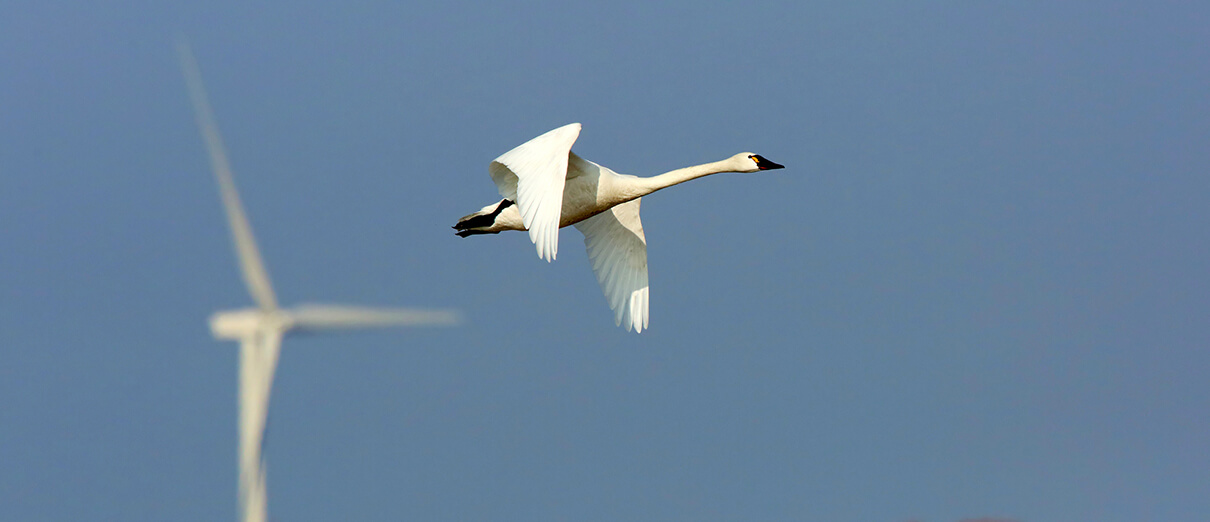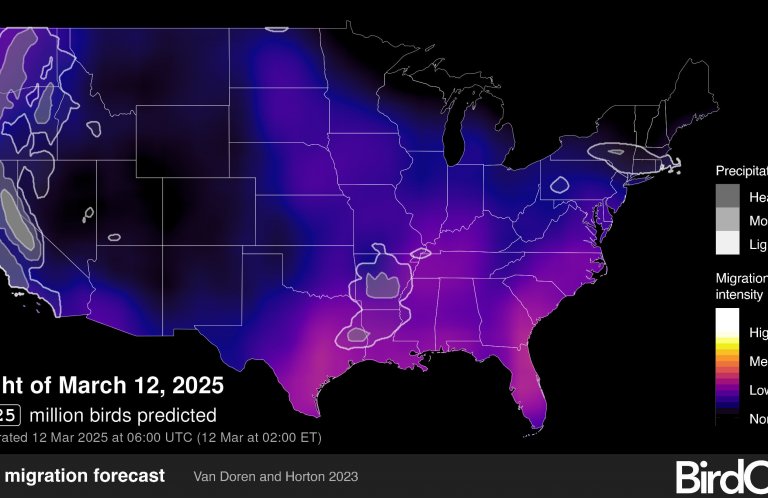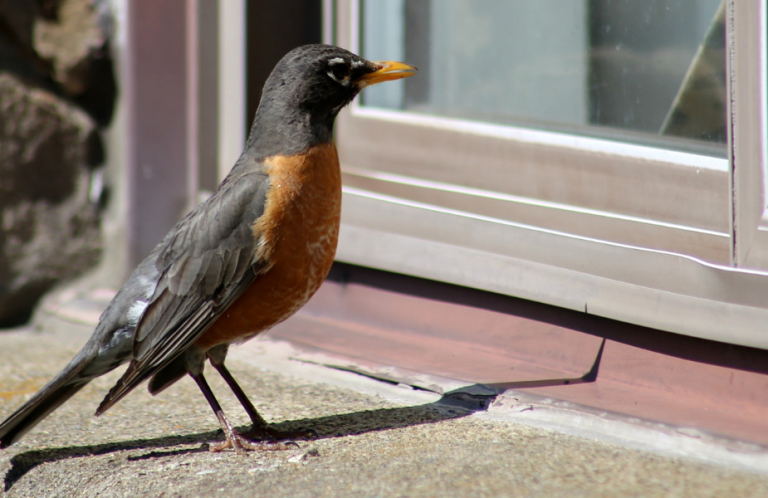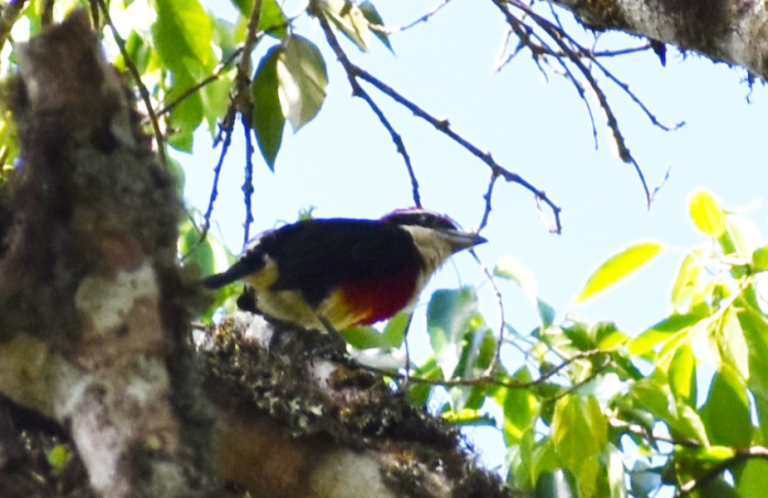Congress and the White House Need to Increase Bird Protections. Here's How.
Thanks to last fall's election, bird advocates have new opportunities to push for bird-friendly policies and conservation funding. The new Administration is off to an encouraging start — the U.S. will rejoin the Paris Climate Agreement, and more than 100 environmental rollbacks are being reviewed. Meanwhile, the bird conservation champions in Congress will soon introduce bird-protection bills that have a strong chance of passing.
There are good reasons to have hope for birds, but the situation is dire. Just last year, a study showed that the U.S. and Canada have lost 3 billion birds in the past 50 years. To turn this trend around, we need to make sure that Congress and the Administration pay attention to the areas that will have the greatest impact. Here are the top five actions that we at American Bird Conservancy will be pushing for.

- Restore the Migratory Bird Treaty Act (MBTA) and pass the Migratory Bird Protection Act
In its last days, the previous Administration finalized a rule to severely weaken protections provided by the MBTA, one of our nation's most effective environmental laws. The rule would end enforcement against “incidental take” — the foreseeable and predictable killing of birds from industrial sources.
In response, a coalition of environmental groups, including American Bird Conservancy, filed a lawsuit to restore these important bird protections. Now, under the new Administration, implementation of the new rule has halted pending further review. While this is an encouraging sign, we need to ensure that these safeguards are permanently in place.
To that end, Congress must pass the Migratory Bird Protection Act (MBPA). This bill would reaffirm the MBTA's protection against incidental take, and it would establish a permitting system for incidental take that requires best management practices to reduce bird deaths. It would be a win-win for birds and industry, saving countless birds and giving industry much-sought regulatory clarity.
- Ramp up the Endangered Species Act (ESA)
New regulations by the previous Administration significantly eroded protections for endangered species and their habitats. This included limitations on listing, enforcement against take, and critical habitat exemptions. All of these regulations need to be reversed, and we need to get back to implementing the law as it should be — basing decisions on the best science.
In some good news, the new Administration has halted implementation of the most recent rollbacks, but much more could be done. It is essential to increase recovery funding to build upon the successful work done under the ESA.
A 2016 analysis by ABC found that ESA-listed bird populations were mostly increasing, with some even being delisted and a few stabilized. But many continue to be in decline, particularly in Hawaii. Increased funding could help keep those species from going extinct
Speak up for the Endangered Species Act.

- Pass the Bird-Safe Buildings Act
Collisions with buildings and other structures kill up to 1 billion birds a year in the U.S., posing one of the greatest human-caused threats to birds. The federal government, which oversees nearly 10,000 buildings in the U.S., can play a huge role in reducing these deaths.
Last year, the U.S. House of Representatives passed the Bird-Safe Buildings Act, which directs public buildings to incorporate bird-friendly building designs and materials. The bill would supply federal agencies with a design guide, helping to ensure that bird-safe design practices — like patterned glass — are effectively applied. It would also promote smarter lighting practices, decreasing light pollution, saving energy, and helping to avert nighttime collisions.
If passed, the Bird-Safe Buildings Act would have a powerful ripple effect, sending a strong message to private industry and others that bird collisions can no longer be ignored.
Please ask your elected officials to co-sponsor this important bill.
- Protect human and wildlife health against toxic pesticides
We hope to finally see long-awaited reforms on the way pesticides are regulated in the U.S. Despite their known harmful impacts on children, farm workers, and wildlife, pesticides like chlorpyrifos and neonicotinoids have yet to be banned or restricted by the Environmental Protection Agency.
The previous Congress introduced several bills to limit use of these and other harmful chemicals. The most recently introduced bill was the Protect America's Children from Toxic Pesticides Act. This legislation called for restrictions on neonicotinoids, a ban on chlorpyrifos, increased citizen participation in the regulation process, and stronger protections for farmworkers and vulnerable communities.
Tell Congress to support the Protect America's Children from Toxic Pesticides Act!

- Support bird-smart wind energy
Renewable energy development is critical in the fight against climate change, but if not carefully sited, wind energy poses serious threats to birds. The annual loss of birds from wind turbines is estimated be at least half a million.
Last year, Congress passed a comprehensive energy bill to promote renewable energy development. The bill, however, did not include sufficient safeguards to minimize impacts for birds and other wildlife. It is essential that the legislation include measures like smart planning to avoid high-risk areas, as well as application of best management practices and compensation for any unmitigated negative effects.
 | Steve Holmer is ABC's VP of Government Affairs |


















































